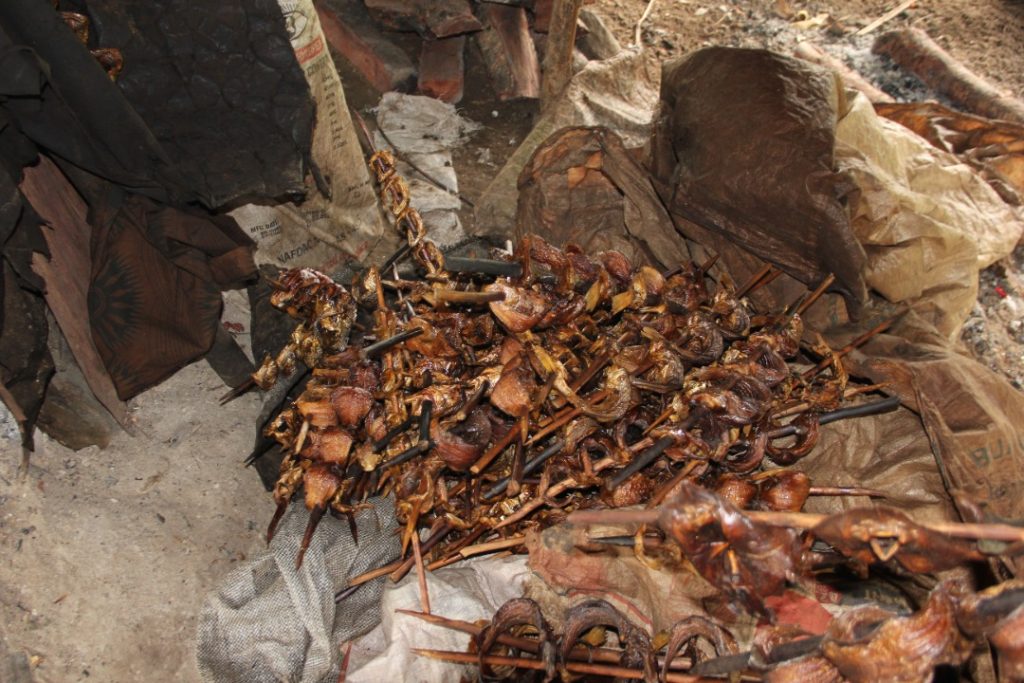Clean up the water ways for easy navigation and fishing.
The attention paid to coastal communities also vary depending on whether such areas are urban or rural. The flooding and projected impacts of the refinery on Lagos, a mega city, attracts global attention, while smaller towns such as Ibeno and communities like Uta Ewua, Ibaka or Ago Iwoye hardly get a mention.
Coastline communities depend on aquatic ecosystem resources to secure their livelihoods and maintain their cultures. A distortion of this environment brings about both subtle and direct impacts on the social, cultural, and economic lives of the people. Canalisation, for instance, and sea level rise, bring in salt water from the sea, thus contaminating freshwater sources. This brings about the stressful contradiction of living on water and yet having none to drink. Besides the pressure on potable water, the intrusion of salt water also alters the diversity of aquatic and terrestrial species in the territories.
The Health of Mother Earth foundation HOMEF engaged fishers inCoastal ecosystems monitoring and training session at Uta Ewua in Ikot Abasi LGA of Akwa Ibom State. The session exposed the divers challenges facing fishers around the country. The executive director HOMEF Dr Nnimmo Bassey urged fishers and the community people in general to protect the coast line from degradation.
“The Nigerdelta coast line is specifically impacted by oil spills, pollution, and the waste been dumped into the river which affects the livelihood of the fisher folk, it affects the quality water and the species in the water. Fisher folk will lose their livelihood which in turn affect the availability of food for Nigeria.”
“The essence of the meeting with fishers in Uta Ewa, is to equip them with tools to be the first line monitors of what is happening in their environment. We have engaged different coastal communities such as Makoko in Lagos, Gbarain in Bayelsa, Ogoni in Rivers, Ibeno in Akwa Ibom State and we are now here in Uta Ewua in Akwa Ibom. The objective is to have our fisher folks defend their ecosystems, defend their livelihoods, advocate for change and live in dignity. We are doing this by equipping them to monitor their environment and report incidents that they see, including oil pollution in our water. We also noticed the mangrove ecosystems have been invaded by the nipa palm. The mangrove forests help to protect the shoreline, and also provide breeding grounds for fishes. The costal ecosystem is of great value to not only the fishers but to everyone.”
The fishers in their resolution after the meeting outlined what they intend to achieve with the environmental training that was received during the session. The resolutions include:
- They will share experiences on how oil spills and environmental pollution affects their community.
- They will share knowledge received with other community members.
- They will use the knowledge in advocacy, dialogue with the operating companies on safe fishing methods under the FishNet Alliance.
- They will use the knowledge gained in engaging government to provide facilities for storage Ag’s processing of their catches.
- They will engage in replanting of mangrove tree species and other forest tree species. They will adopt community conservation methods to ensure sustainable reforestation.
- They will also dialogue with the ministry of agriculture and natural development to ensure adequate support for fisheries in the community and the state in general.
- They demanded that oil companies and the government should clean up their rivers and estuaries and pay adequate compensation for losses due to oil pollution.
- They called on the Nigerian Inland Waterways Authority to clear up wrecks and abandoned equipment from their for safe navigation and fishing activities.
- They also called for security agencies to safe them from ravages of sea pirates who are a serious threat to lives and property in the area. Present at the event were members of the community council, members fromVarious fishers associations, NGOs and the media. A chapter of the FishNet Alliance was duly set up in the community at the close of the training session.









